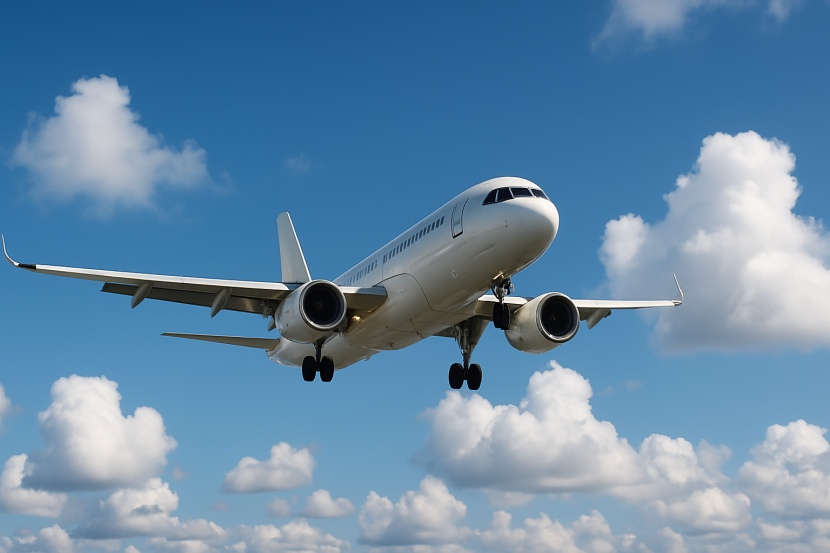Published on
September 22, 2025
The Netherlands is set to increase its air passenger tax in 2026, a decision that has raised concerns across the aviation and tourism industries. With some of the highest flight taxes in Europe, the Dutch government plans to raise the existing €29.40($34.53) tax by 2.9%, effective January 1, 2026. This increase will add an extra €0.85($1.00) to the ticket cost, bringing the tax to €30.25($35.53) per passenger. However, the impact is expected to be far more significant when the tax on long-haul flights rises in 2027, potentially adding €50 to €70($58.73 to $82.22) per ticket, making travel from Dutch airports even more expensive.
Rising Taxes: A Burden on Passengers
The Dutch government’s decision to increase flight taxes comes at a time when air travel costs are already on the rise. For Dutch families, this could mean paying hundreds of euros more per trip. A family of four flying to a popular destination like Greece could face an additional €200($234.92) in taxes alone. This tax burden is expected to make the Netherlands one of the most expensive countries in the European Union for air travel, no matter the distance. While the government insists the tax will help fund sustainability initiatives, critics argue that it could have the opposite effect.
A Negative Impact on Airline Connectivity
The aviation industry is particularly concerned about the impact of the tax hike on the Netherlands’ position as a global travel hub. Airlines like KLM warn that the tax increase will undermine the country’s connectivity, making it less attractive for tourists and business travelers alike. Passengers are increasingly turning to neighboring countries, such as Belgium and Germany, where air passenger taxes are lower. In fact, research shows that 74% of Dutch passengers would consider flying from a foreign airport to save money on taxes.
KLM’s data highlights a significant trend: between 2019 and 2024, the number of Dutch passengers flying from airports in Düsseldorf and Brussels has increased by 41% and 20%, respectively. This shift is expected to accelerate once the long-haul flight tax is introduced in 2027. As a result, Dutch airports may lose out on valuable passengers and international connections, which could affect the broader economy.
Impact on Tourism and Economic Growth
Tourism is a crucial sector for the Netherlands, with Amsterdam Schiphol Airport serving as a major gateway for international travelers. The airport alone contributes billions to the economy. However, the flight tax hike threatens to reduce flight demand, particularly from budget-conscious travelers who are increasingly choosing cheaper alternatives abroad. The Dutch government’s push to fund sustainable aviation initiatives is seen as a long-term strategy. However, critics argue that taxing passengers more could drive them away, weakening the country’s tourism sector.
Local airports, such as Eindhoven and Rotterdam-The Hague, are also expected to feel the effects of the tax hike. These airports, often used by low-cost carriers, may see fewer passengers as travelers opt for cheaper airports across the border. Smaller regional airports that rely on budget-conscious tourists are particularly vulnerable to the rise in air passenger taxes.
Aviation Sustainability vs. Economic Viability
While the Dutch government insists the higher taxes will help fund green initiatives to reduce aviation’s environmental impact, there is growing concern that these funds will not be effectively used to accelerate the industry’s transition to sustainability. Airlines have stressed that higher taxes could divert much-needed resources from investments in cleaner, more fuel-efficient aircraft and sustainable aviation fuels. The aviation sector’s goal of achieving net-zero emissions by 2030 could be hindered by the tax hike, as funds that could be used for innovation are instead directed to government coffers.
Additionally, there is concern that higher taxes on airfares will make the Netherlands less attractive for international tourists, who may choose to fly to other European hubs where travel is more affordable. This would not only hurt the tourism sector but also have a knock-on effect on the local economy, which depends heavily on tourism and aviation.
A Call for Balanced Taxation
The rise in flight taxes is a contentious issue, with the aviation industry and tourism bodies urging the Dutch government to reconsider its decision. While sustainability remains a priority, there needs to be a balance between environmental goals and economic viability. Raising air passenger taxes without considering the wider impact on travelers, airlines, and the broader economy could end up hurting the very sectors the government aims to support.
A Fragile Balance
As the Netherlands prepares to increase its air passenger tax in 2026, it must consider the wider consequences for both its aviation sector and tourism industry. While sustainability is a worthy goal, the government’s approach could undermine the country’s global connectivity and economic growth. With travelers already looking to neighboring countries for cheaper alternatives, the Dutch government will need to reassess its strategy to ensure that the tax hikes do not backfire, ultimately harming the tourism and aviation industries it aims to protect.
